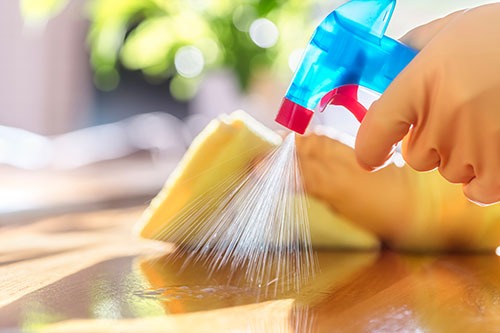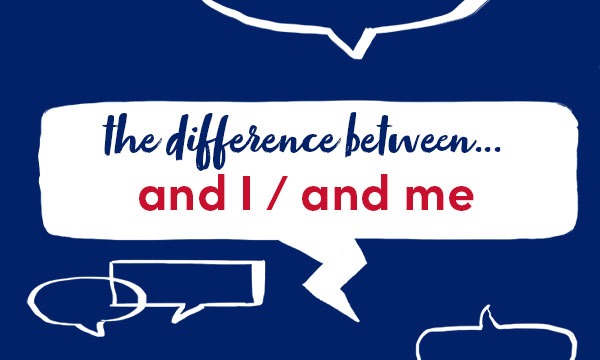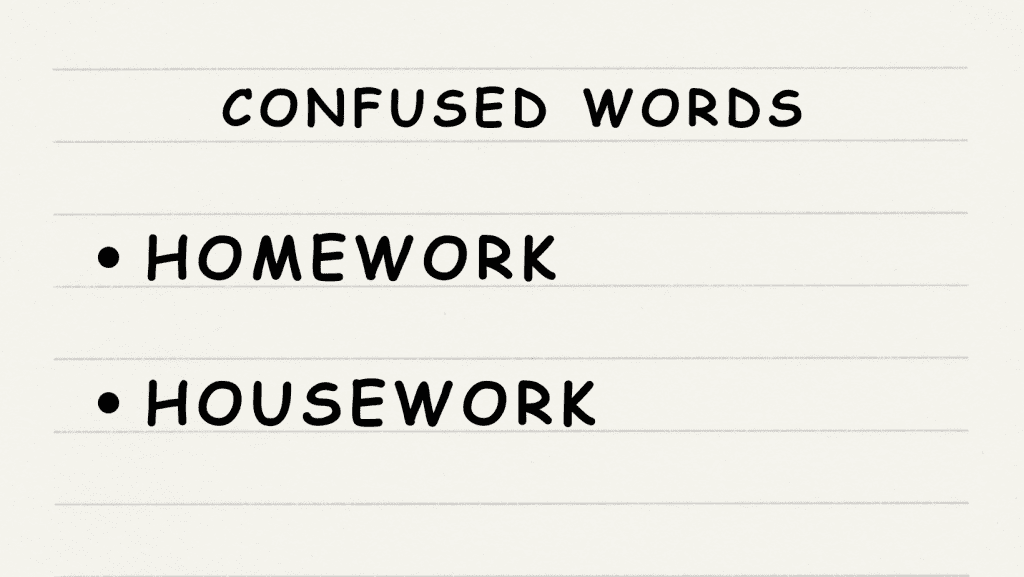

Difference between HOMEWORK and HOUSEWORK

Learn more about our courses
What’s the difference between homework and housework ?
These two words seem practically identical, but they actually have separate meanings and uses. I’ll clarify that in today’s lesson, so that you can be sure to use the right word.
And at the end I’ll also tell you about a common mistake that English learners often make with homework and housework.
How to use HOMEWORK in English
Homework refers to schoolwork that you do at home.
So if you’re in class, your teacher might give you homework – maybe a worksheet, maybe a book/article to read, maybe an exercise to do or something to research – and then you do that homework outside of class, at home.
Homework is usually extra practice or an additional assignment to help you practice what you learned inside class, or take your learning further.

How to use HOUSEWORK in English
Housework refers to the physical tasks that are necessary to take care of your house or apartment , the place where you live. We usually use housework to refer to cooking, cleaning, and laundry (washing your clothes).
So homework is schoolwork you do at home, and housework involves maintaining your living space.

What about “chores”?
One of my students asked if the word chores means the same thing as housework.
Yes – chores is another word we can use for those things that you have to do around the house. Washing dishes, sweeping the floor, cleaning the toilet, and so on. You probably don’t really enjoy them, but they need to get done.
And it’s also common to use this word chores you have a parent who makes their children help with these tasks. So the parent would say, “you have to do your chores.” You need to do those things around the house that you’re responsible for, like cleaning up your room or maybe helping with the laundry.

HOMEWORK and HOUSEWORK are always singular!
Now here’s an important detail – the word chore is countable, so you can have one chore, two chores, three chores, or a lot of chores to do.
But homework and housework are BOTH considered uncountable . So we always use them in the singular, always homework and housework, never homeworks or houseworks.
They are singular even when they refer to multiple tasks. So even if you have multiple assignments to do and multiple things to do in your house, it’s still only homework and housework.
You can talk about general quantity by saying a little homework/housework or a lot of homework/housework – but don’t use numbers, like “three homeworks,” and don’t add an S, “a lot of houseworks” – it’s not correct.
WORK / WORKS
This rule also applies to the word “work” – most of the time it’s singular.
Don’t say “I have a lot of works to do.” – the correct way would be “I have a lot of work to do.” You can say tasks, you can say projects, you can say assignments, you can say things – those can all be plural, but work is typically singular.
There’s one situation where we can say “works” and that’s specifically when we’re talking about works of art, works of music, or works of literature. So when we’re talking about productions in the artistic world, then sometimes we use works in the plural. For example, this is one of Picasso’s greatest works of art.
But in everyday life, when talking about the work you have to do, it’s always work, singular and same with homework and housework, singular.
Now you know the difference between homework and housework – and remember, doing homework is really important for reviewing and practicing what you learn!
A lot of our courses at Espresso English include homework. Sometimes that’s a quiz so you can test yourself on the lesson, and sometimes the homework is a writing task or speaking task where you can send your answers to our teaching team and get correction and feedback.
Our students often find this the most valuable part of our courses, because then you’re not just watching or reading or listening to me in English, but you’re also using English yourself. It really makes a difference in helping you learn and remember better.
Join our courses to improve your English fast in just a few minutes a day!

Take free sample lessons

You might also like...

Light up, Lighten up, or Enlighten?

In mind vs. On my mind

Whose vs. who’s: Difference & Examples

Hi, I’m Shayna. I create courses helping English as a Second Language learners become more fluent in just a few minutes a day – so they can speak English naturally and confidently in work and daily life.
Work and home are two of the most important places in many of our lives, so it’s no wonder there are so many English expressions related to both places. Many of the most commonly confused words I encounter as a teacher are either related to home or work. Let’s take a quick look at how to remember the difference between four of these common expressions.
Homework is studying you do at home for your school or college. It is usually set by the teacher to be completed before a certain date. For example, the teacher might say “Please complete your writing task for homework and hand it in before the next lesson.”

Housework means chores (everyday tasks) you do around your house or apartment. For example: ironing, washing up, cleaning your house and taking out your trash are all housework tasks. If you feel tired at the end of a long day at work, when you get home you might say “I’m not doing any housework tonight. I’ll do my washing at the weekend instead.”
When talking about our jobs, we don’t use ‘homework’ or ‘housework’. If we are able to work on things for our jobs without leaving our houses we can say that we ‘work from home’. For example “I need to wait for a package to be delivered so I am working from home today.” If you need to stay late at your office to complete some extra work, you can say you are ‘working overtime’ and if you just have too much work to complete, you can say you are ‘overworked’.
Let’s remind ourselves of those expressions:
Housework: chores, like washing and cleaning.
Homework: schoolwork that you do at home
To work from home: to do your main job (that you earn money for) without leaving your house.
To work overtime: to stay late at work.
To be overworked: to have too much work to do.
So, how about you? Who does the housework in your home? Did you have a lot of homework when you were at school? Do you ever work overtime? And, do you feel overworked?
Similar article : Easily confused words: Sick and Ill
Learn English Online
- How it works
- Levels and certificate
- Plans and prices
- Terms and conditions
Our Courses
- Business English
- General English
- Travel English
- TOEFL Preparation
- TOEIC Preparation
- EF English Live App
- Popular topics
- Online enquiry
- Test your English
- All articles
EF English Live
- Work with us
- Privacy policy
© 1996-2023 Signum International AG. All rights reserved.

What’s the difference between homework and housework?
This week we are looking at two words which are commonly confused because of their similar spellings: homework and housework .

Homework is work that school pupils are given to do at home. You say that pupils ‘ do homework ’. You don’t say that they ` make homework ‘.
Have you done your English homework ?
Homework is an uncountable noun.

Housework is work such as cleaning or washing that is done in a house.
She relied on us to do most of the housework .
Housework is an uncountable noun.
Find out more in our English Usage article .
This blogpost is based on Collins COBUILD English Usage , written for learners of English. For more examples of English usage points, please visit: https://grammar.collinsdictionary.com/english-usage .
All opinions expressed on this blog are those of the individual writers, and do not necessarily reflect the opinions or policies of Collins, or its parent company, HarperCollins.
Related Articles
What’s the difference between title and headline, how to complain in english, what’s the difference between ground floor and first floor, saying goodbye, what’s the difference between habit and custom, other articles.

‘and I’ or ‘and me’?

Reported speech

Indirect speech
Sign up for the newsletter.
Get the latest news
Cookie Policy
Privacy overview.
English365plus.com
- Confused Words
Confused Words: Homework vs. Housework

Hi learners! Today we’ll delve into an interesting English language topic. We’re going to differentiate between the terms “ Homework ” and “ Housework “. Both words seem similar but have distinct meanings and uses. Let’s go!
“ Homework ” (IPA: /ˈhoʊmˌwɜːrk/) refers to tasks assigned to students by their teachers, intended to be completed outside of class, generally at home.
Here are 10 examples:
- The teacher gave us a lot of homework today. (The teacher assigned many tasks)
- I need to finish my math homework before dinner. (I need to complete my math tasks)
- She is diligent about completing her homework every day. (She is conscientious about doing her school assignments)
- He stayed up late to complete his homework . (He stayed up late to finish his school tasks)
- Can you help me with my English homework ? (Can you help me with my English assignments)
- I have homework over the weekend. (I have school tasks to do over the weekend)
- She forgot her homework at home. (She forgot her school assignments at home)
- He was punished for not doing his homework . (He was punished for not completing his school tasks)
- The homework is due tomorrow. (The school tasks need to be completed by tomorrow)
- Our homework involves researching climate change. (Our school assignment involves researching climate change)
Housework ” (IPA: /ˈhaʊsˌwɜːrk/), on the other hand , refers to the general cleaning or maintenance tasks done in a house or apartment.
- I have a lot of housework to do this weekend. (I have many cleaning or maintenance tasks)
- He helps his mother with the housework . (He assists his mother with home chores)
- She dislikes doing housework . (She dislikes cleaning and maintaining the house)
- Can you help me with the housework ? (Can you help me with the home chores)
- We share the housework equally. (We share the cleaning and maintenance tasks)
- He hired a maid to do the housework . (He hired a maid to perform the home chores)
- Washing dishes is part of my housework . (Washing dishes is one of my home chores)
- She does the housework every Sunday. (She does the home chores every Sunday)
- I finished my housework early today. (I finished my cleaning and maintenance tasks early)
- They believe in sharing housework responsibilities. (They believe in sharing home chores)
The distinction between “ Homework ” and “ Housework ” is now clear. “Homework” refers to school assignments completed outside the class, while “Housework” refers to cleaning or maintenance tasks performed at home. Understanding these differences will help refine your English usage.
Share this post
You may also like....

Confused Words: Save vs. Rescue

Confused Words: Hard, Difficult & Tough

Confused Words: Breath vs. Breathe
23 English Idioms Related to Beauty
Phrase Explanation: Give It A Try
English Vocabulary for Feelings and Emotions
Phrase Explanation: We Can Work It Out
Phrase Explanation: I Have No Regrets
Confused Words: Bill, Invoice & Receipt
17 English Idioms Related to Nature
Espresso English Podcast
Homework vs. housework.

- All Episodes
Jan 18, 2021
What’s the difference between homework and housework ? These two words seem practically identical, but they actually have separate meanings and uses. I’ll explain in today’s lesson, so that you can be sure to use the right word. And at the end I’ll also tell you about a common mistake that English learners often make with homework and housework.
About the Podcast
Improve your English in just a few minutes a day! Learn English grammar, vocabulary, phrases, idioms, and more.
Share This Episode
Private premium login.
Having trouble logging in?

Learn English Free
Common mistakes and confusing words in english.
| homework vs housework | (noun) - refers to tasks assigned to students by teachers to be completed mostly outside of class, and derives its name from the fact that most students do the majority of such work at home.
(noun) - refers to domestic household chores such as cleaning and cooking.
|
|---|---|
Stack Exchange Network
Stack Exchange network consists of 183 Q&A communities including Stack Overflow , the largest, most trusted online community for developers to learn, share their knowledge, and build their careers.
Q&A for work
Connect and share knowledge within a single location that is structured and easy to search.
Etymology of "housework" and "homework"
In American English (perhaps British as well), "housework" and "homework" have different meanings. "Housework" refers to working around the house, such as dusting, vacuuming, etc., whereas "homework" refers to doing some school assignments at home, after school is out.
Homework can be completed outside the home, such as in a library. In order to do housework, however, one must be at one's house. How and when did two words which seem so similar at first glance gain such different meanings?
- 2 It might be interesting for you to know that I didn't find any entry in the OED regarding "housework". It is weird since I know the word exists. – Alenanno Commented Apr 3, 2011 at 17:35
- 2 Maybe the Brits don't do houseworks! But how they've managed to keep their mansions & chesterfields so pristine is beyond me. Mm. – Percy P. Commented Apr 3, 2011 at 17:41
- 2 We Brits invented 'housework'! Along with a rigid class system to make sure it was only done by scullery maids & other lesser mortals, leaving the lady of the house to concentrate of receiving 'gentleman callers'. But I never heard of anyone so grand they needed to pluralise the efforts others make on their behalf. – FumbleFingers Commented Apr 3, 2011 at 17:48
- 2 And originally in English public schools (which are private) homework wouldn't be done at home (since they were boarders) but in your house - but wasn't called homework it was called prep. Great language! - for an encore we will explain cricket – mgb Commented Apr 3, 2011 at 18:09
- Once I finish this post, I will go back to "working from home", which interestingly refers to a paid job, and is neither housework nor homework. – Jay Commented May 1, 2012 at 18:01
2 Answers 2
According to the OED , the original meaning of "homework" does conflate much more obviously with "housework," with the former being defined, above all, as:
Work done at home , esp. as distinguished from work done in a shop or factory.
The earliest citation is a hearty piece of precious advice from a sermon from the 1680s:
Wherefore let every Man, in the first place, look after his Homework ; what he hath to do at Home.
Less vague examples of homework were given in later quotes: Spinning, quilting, and embroidery. This crafty and practical usage seems, however, to be an obsolescent meaning of homework , with the last use from the '30s. But the word "home worker" (doing low-paying piecework) lives on, preserving this original meaning of "homework":
Most home workers are women. They need the flexibility of working hours that home work allows. ( Guardian , 1973)
The second—and now primary—meaning of "review/preparatory school work despised by youth" didn't appear until much later (late 19th century), but it's thriving and strong, having quickly overtaken the original meaning.
▶ Housework
The first citation of "house-work" from the OED (which hyphenates it) is from mid-19th century. Its meaning has always been as it is now: "the work done to keep a house orderly (and housewares clean)," diligently by housewives and begrudgingly by house-servants:
While the boys are engaged in out-door work, the girls could be employed in sewing or house-work . ( Report of the Commissioner of Indian Affairs , 1871)
Here it contrasts homework (sewing) with housework [other activities].
As FumbleFingers's Ngram shows, it has also been used in texts in its unhyphenated form, which the OED has chosen not to include, as Alenanno first noted above in the comments, although it does feature a sub-entry for the spaced "house work" (definition-less, with a single late-19th-century quote).
So the two words would seem to have diverged after the first ( homework ) took on a specialized meaning relatively late in its life. Now let's find the courage to get back to doing either/both!
- So you did found it in the OED? – Alenanno Commented Apr 3, 2011 at 22:56
- Aye, but not as "housework," but as "house-work" and "house work." The Brits prefer 'em hyphens & spaces, it seems. – Percy P. Commented Apr 3, 2011 at 23:38
- 1 I did find it as "housework" at dictionary.reference.com/browse/housework . I do believe American English tends to lose the hyphens in words more quickly than British English, but I am no linguis. That is just speculation. – ssakl Commented Apr 4, 2011 at 15:21
I think it's pretty clear housework came first, as shown by this . Apart from anything else, the activity now called homework probably didn't actually occur very often in a world where many children either didn't go to school at all, or had limited access to books, writing materials, etc. at home.
But it's worth mentioning that some (non-working) women who don't really like to call themselves (or be called) a 'housewife' will accept 'home-maker'. There are various subtle differences between house and home , but they're pretty much the same thing in most contexts, notwithstanding the 1964 song A House Is Not a Home .
- 1 This 'subtle difference' in particular is one that I have always found very interesting. It makes the English language appear quite sweet (Home suggests 'family' - a 'lived-in' house). Many other languages don't have this same distinction, though they interestingly are both of Germanic origin. – Karl Commented Apr 3, 2011 at 18:58
Your Answer
Sign up or log in, post as a guest.
Required, but never shown
By clicking “Post Your Answer”, you agree to our terms of service and acknowledge you have read our privacy policy .
Not the answer you're looking for? Browse other questions tagged etymology or ask your own question .
- Featured on Meta
- User activation: Learnings and opportunities
- Join Stack Overflow’s CEO and me for the first Stack IRL Community Event in...
Hot Network Questions
- Why doesn't SiLU suffer from a worse version of a "dying ReLU" problem?
- A journal has published an AI-generated article under my name. What to do?
- How do I go about writing a tragic ending in a story while making it overall satisfying to the reader?
- How can I analyze the anatomy of a humanoid species to create sounds for their language?
- Finding Exact Trigonometric Values
- LaTeX labels propositions as Theorems in text instead of Propositions
- How can I format a partition in a mapper device?
- Why were there so many OSes that had the name "DOS" in them?
- jq - ip addr show in tabular format
- Philosophical dogma hindering scientific progress?
- Why is so much of likelihood theory focused on solving the score function equation?
- Why do so many great Tzaddikim die so young?
- Is this a misstatement of Euclid in Halmos' Naive Set Theory book?
- Is it secure to block passwords that are too similar to other employees' old passwords?
- Paying a parking fine when I don't trust the recipient
- Is it feasible to create an online platform to effectively teach college-level math (abstract algebra, real analysis, etc.)?
- Why is the area covered by 1 steradian (in a sphere) circular in shape?
- Is caching external calls considered a state change in the context of safe HTTP methods
- Correct syntax to add WMTS to Leaflet map
- The quest for a Wiki-less Game
- Is there mathematical significance to the LaGuardia floor tiles?
- Can flood basalt eruptions start in historical timescales?
- Is Produce Flame a spell that the caster casts upon themself?
- Is this grammartically correct sentence "這藥物讓你每天都是良好的狀態"?

What’s the Difference Between Homework And Housework?
Here are two words that are often confused.
Homework refers to the tasks you were given by your teacher and that you were supposed to do at home. (In German: “‘Hausaufgaben’)
Perhaps you have your own children now and spend your afternoons helping them with their homework—as your parents might have done years ago.
Housework refers to the everyday tasks or chores that need to be done at home, like washing the clothes, washing the dishes, cleaning and ironing. (In German: ‘im Haushalt anfallende Arbeiten’)
Submit a Comment Cancel reply
Your email address will not be published. Required fields are marked *
Submit Comment

What should I write about next? Any suggestions?

Housework vs Household: Their Meanings And Differences

Clever & short intro sentence: In the realm of domestic duties, a debate rages on between housework and household.
A proper word to describe the tasks involved in maintaining a home could be both housework and household. Housework refers to the physical chores and cleaning activities required to keep a home tidy and organized. On the other hand, household encompasses a broader scope, including not only the physical tasks but also the management and organization of the home as a whole.
This article delves into the nuances of housework versus household, exploring the distinctions between the two terms and their significance in the realm of domestic responsibilities.
Definitions
Define housework:
Housework refers to the routine tasks and chores that are necessary to maintain a clean, organized, and functional living space. This can include activities such as cleaning, laundry, cooking, and organizing. Housework is essential for creating a comfortable and healthy environment for the inhabitants of a household.
Define household:
A household is a group of people who live together in a shared living space. This can include family members, roommates, or individuals who cohabitate. The household is the physical location where daily activities and routines take place, including housework, meal preparation, and social interactions. It is a central hub for daily life and serves as a place of comfort and security for its inhabitants.
How To Properly Use The Words In A Sentence
Understanding the distinction between “housework” and “household” is crucial for effective communication. Let’s delve into how to use these words correctly in a sentence.
How To Use Housework In A Sentence
Housework refers to the tasks involved in maintaining a clean and organized home. When using “housework” in a sentence, it is essential to showcase the action or activities related to household chores. Here are some examples:
- She spent the entire morning doing housework, including vacuuming, dusting, and doing laundry.
- Housework can be exhausting, but the satisfaction of a tidy home makes it all worth it.
- It is important to divide the housework responsibilities evenly among all household members.
How To Use Household In A Sentence
On the other hand, “household” refers to a group of people living together in a home. When using “household” in a sentence, it typically refers to the people or family unit within a residence. Here are some examples:
- Our household consists of four family members and a pet dog.
- She manages the household finances efficiently, ensuring all bills are paid on time.
- It is essential to maintain a harmonious atmosphere within the household for a peaceful living environment.
More Examples Of Housework & Household Used In Sentences
Brief Section Introduction: Explore more examples of how the terms housework and household are used in everyday sentences.
Examples Of Using Housework In A Sentence
- The daily housework includes vacuuming, dusting, and doing the laundry.
- She delegated the housework to her children to teach them responsibility.
- Completing the housework before guests arrive is always a priority.
- He offered to help with the housework to lighten her load.
- She hired a cleaning service to take care of the housework once a week.
Examples Of Using Household In A Sentence
- The household expenses were carefully budgeted to ensure financial stability.
- She manages the household affairs with precision and efficiency.
- The household chores were divided among family members to promote teamwork.
- They decided to downsize their household to a smaller, more manageable space.
- She takes pride in maintaining a well-organized and tidy household .
Common Mistakes To Avoid
One of the most common mistakes that people make when discussing household tasks is using the terms “housework” and “household” interchangeably. While these words may seem similar, they actually have distinct meanings that should be used correctly to avoid confusion.
1. Using “Housework” To Refer To The Entire Household
One common mistake is using the term “housework” to refer to all tasks and responsibilities within a household. In reality, housework specifically refers to the physical tasks involved in maintaining a clean and organized home, such as cleaning, laundry, and dishes. Using “housework” to encompass all household duties is incorrect and can lead to misunderstandings.
2. Using “Household” To Describe Cleaning Tasks
Another mistake is using the term “household” to describe specific cleaning tasks, such as vacuuming or dusting. The term “household” actually refers to the entire family or group of people living together in a home, as well as the physical space they occupy. It is important to use “household” in the correct context to avoid confusion and miscommunication.
3. Confusing The Roles Of Housework And Household Management
Some people mistakenly use “housework” and “household management” interchangeably, when in fact they are separate concepts. Housework involves the physical tasks of maintaining a home, while household management includes organizing schedules, budgeting, and other administrative tasks related to running a household. It is essential to understand the distinctions between these terms to effectively delegate responsibilities and manage a home efficiently.
Context Matters
When it comes to the terms “housework” and “household,” the choice between them can greatly depend on the context in which they are used. Each term carries its own connotations and implications, making it important to choose the right one based on the specific situation.
Examples Of Different Contexts
1. Formal Setting:
In a formal setting, such as a business meeting or academic paper, the term “household” may be more appropriate. It conveys a sense of professionalism and structure when discussing the management of a home and its inhabitants. On the other hand, “housework” might be seen as more casual and domestic, suitable for everyday conversations or informal settings.
2. Legal Documents:
When it comes to legal documents or contracts, the choice between “housework” and “household” can have significant implications. Using the term “household” can encompass a broader range of responsibilities and relationships within a home, while “housework” may specifically refer to the tasks and chores involved in maintaining a household.
3. Cultural Differences:
In different cultures, the preference for either “housework” or “household” can vary. For example, in some cultures, the term “housework” may carry negative connotations or be seen as menial labor, while “household” may be used to emphasize the overall management and organization of a home.
Exceptions To The Rules
While the distinction between housework and household is generally clear, there are some exceptions where the rules may not apply. Here are a few key exceptions to keep in mind:
1. Professional Housekeeping Services
When discussing professional cleaning services, the terms housework and household can sometimes be used interchangeably. In this context, housework refers to the actual cleaning tasks performed, while household encompasses the overall management and organization of the home.
When hiring a professional housekeeper, you are not only outsourcing your housework but also entrusting them with the care of your entire household.
2. Cultural Differences
In some cultures, the definitions of housework and household may vary, leading to different interpretations and applications of the terms. For example, in certain cultures, household duties may extend beyond cleaning and maintenance to include responsibilities related to family and community.
In traditional Japanese households, the concept of ikigai encompasses the idea of finding purpose and fulfillment in one’s daily tasks, whether they are related to housework or broader household management.
3. Personal Preferences
Individuals may have their own unique definitions and boundaries when it comes to housework and household responsibilities. Some may prioritize cleanliness and organization (housework), while others may focus more on creating a nurturing and harmonious living environment (household).
For some people, the act of cooking a meal for their family is considered housework, while for others, it is a way to strengthen the bonds within the household.
The distinction between housework and household responsibilities is crucial for understanding the division of labor within a home. Housework refers to the specific tasks involved in maintaining a clean and organized living space, while household responsibilities encompass a broader range of duties that contribute to the overall functioning of a household.
By recognizing the difference between these two concepts, individuals can better allocate their time and energy towards effectively managing their domestic duties. It is essential to approach housework and household responsibilities with a balanced perspective, acknowledging the importance of both in creating a harmonious and efficient living environment.

R.J. is the new owner of GrammarBeast.com. Having worked in bookstores, libraries, and more, his passion for grammar and writing are pivotal. As a ghostwriter for books that have sold tens of thousands of copies, he wants to help others find the right words and understand the differences.
Accretive vs Incremental: When & How To Use Each One?
Bunkum vs Nonsense: Which Should You Use In Writing?
© 2024 GrammarBeast.com - All Rights Reserved.
Privacy Policy
Terms of Service

Learn the Difference
Difference Between Homework and Housework
Intermediate
What’s the difference between homework and housework ?
And at the end I’ll also tell you about a common mistake that English learners often make with homework and housework.
How To Use HOMEWORK In English
Homework refers to schoolwork that you do at home.
So if you’re in class, your teacher might give you homework – maybe a worksheet, maybe a book/article to read, maybe an exercise to do or something to research – and then you do that homework outside of class, at home.
Homework is usually extra practice or an additional assignment to help you practice what you learned inside class, or take your learning further.


How To Use HOUSEWORK In English
Housework refers to the physical tasks that are necessary to take care of your house or apartment , the place where you live. We usually use housework to refer to cooking, cleaning, and laundry (washing your clothes).
So homework is schoolwork you do at home, and housework involves maintaining your living space.

What About “Chores”?
One of my students asked if the word chores means the same thing as housework.
Yes – chores is another word we can use for those things that you have to do around the house. Washing dishes, sweeping the floor, cleaning the toilet, and so on. You probably don’t really enjoy them, but they need to get done.
And it’s also common to use this word chores you have a parent who makes their children help with these tasks. So the parent would say, “you have to do your chores.” You need to do those things around the house that you’re responsible for, like cleaning up your room or maybe helping with the laundry.

HOMEWORK And HOUSEWORK Are Always Singular!
Now here’s an important detail – the word chore is countable, so you can have one chore, two chores, three chores, or a lot of chores to do.
But homework and housework are BOTH considered uncountable . So we always use them in the singular, always homework and housework, never homeworks or houseworks.
They are singular even when they refer to multiple tasks. So even if you have multiple assignments to do and multiple things to do in your house, it’s still only homework and housework.
You can talk about general quantity by saying a little homework/housework or a lot of homework/housework – but don’t use numbers, like “three homeworks,” and don’t add an S, “a lot of houseworks” – it’s not correct.
WORK / WORKS
This rule also applies to the word “work” – most of the time it’s singular.
Don’t say “I have a lot of works to do.” – the correct way would be “I have a lot of work to do.” You can say tasks, you can say projects, you can say assignments, you can say things – those can all be plural, but work is typically singular.
There’s one situation where we can say “works” and that’s specifically when we’re talking about works of art, works of music, or works of literature. So when we’re talking about productions in the artistic world, then sometimes we use works in the plural. For example, this is one of Picasso’s greatest works of art.
But in everyday life, when talking about the work you have to do, it’s always work, singular and same with homework and housework, singular.
Now you know the difference between homework and housework – and remember, doing homework is really important for reviewing and practicing what you learn!
Course Curriculum
- Difference Between Homework and Housework 20 mins
- Difference Between Accept and Except 20 mins
- Difference Between Ad and Add 10 mins
- Difference Between Adapt and Adopt 30 mins
- North Africa’s economy
- Middle East economy
- world economy
- International
- Photography
- Sign in / Join
- Advertisement
- privacy-policy

“Qatar entitled to be proud of success of 2022 World Cup…

President Tebboune meets Arab leaders in Doha

President Tebboune commends exceptional organization of Qatar’s World Cup 2022- Video

FIFA’s October world rankings : Algerian football team gains 04 spots,…

African Football: Full results of CHAN 2022 draw

Death of Mujahid, retired Major General Ali Bouhedja: Army Chief, Lt….

Presidential Election: Tebboune, new President of Algeria

Algeria: CEEG represents mega solar project in Washington

Algerian-US ties: New impetus, dense security cooperation

Algerian investment report to be published on Washington Post

Counterterrorism, fight against organized crime (Dec 21-27, 2022): Distinct operations with…

Saharawi President Ghali deplores double standards in dealing with conflicts at…

Tunisian head of government hails Algeria’s support for her country

Western Sahara: Secretary General of UGTSARIO partakes in 11th Congress of…

Algeria, Oman pay heed to expansion of ties
English teacher: difference between homework and housework.

Homework (noun) – refers to tasks assigned to students by teachers to be completedmostly outside of class, and derives its name from the fact that most students do the majority of such work at home.
For example: “A lot of students in the UK get too much homework.”
Housework (noun) – refers to domestic household chores such as cleaning and cooking.
For example: “I never seem to have enough time to do the housework. There’s always something that needs dusting or polishing”.
Samira SALAH
Related articles more from author.

Delegation of French local elected officials pays visit to Casbah of Algiers

Algeria: Culture Minister extends condolences to Indonesia over deadly quake, artistic, cultural exchange tabled

12th International Festival of Illumination & Miniature opens in Tlemcen, Iran in attendance
Leave a reply cancel reply.
Save my name, email, and website in this browser for the next time I comment.
Latest article
- North Africa's economy

Embassy of India in Algiers celebrates India Technical and Economic Cooperation (ITEC) day 2022

Diplomacy: Abdelhafid Alahoum, new Algerian ambassador to Hungary

Counterterrorism, fight against organized crime (Dec 21-27, 2022): Distinct operations with qualitative results- Full...

Algeria: Moderate mag. 3.6 earthquake hits Batna province

2023 Finance Bill published in Official Gazette
Popular posts.

Most Beautiful Architecture in Algeria: 1-Maqam Echahid ” The Martyrs’ Monument/Memorial”

Tourism in Algeria: Top Places to Visit in Tlemcen

Tourism In Algeria: 12 Things to see and do in Bejaia,...
Popular category.
- Economy 3086
- International 2945
- Society 1909
- Culture 1512
- EXPLORE Random Article
- Happiness Hub
How to Balance Homework and Chores
Last Updated: December 15, 2022 References
This article was co-authored by Ashley Pritchard, MA . Ashley Pritchard is an Academic and School Counselor at Delaware Valley Regional High School in Frenchtown, New Jersey. Ashley has over 3 years of high school, college, and career counseling experience. She has an MA in School Counseling with a specialization in Mental Health from Caldwell University and is certified as an Independent Education Consultant through the University of California, Irvine. This article has been viewed 98,011 times.
Sometimes you are so busy with things like doing the dishes, cleaning your room, mowing the lawn, and doing your homework that there’s not enough time for the fun things in life. While homework and chores are important, it doesn’t mean that they need to occupy all of your time. Balancing your homework and your chores will give you the extra time you need to socialize and enjoy your favorite hobbies.
Getting Yourself Organized

- As you complete each task, cross it off on the list so that you remember that you don’t have to do it anymore.
- Create your list on a piece of paper or your cellphone. Storing lists mentally leaves room for you to forget what you need to do.
- During the day you may get additional chores or homework assignments. When you do, make sure to add them to your list.

- Your schedule doesn’t need to be as specific as an hour-by-hour schedule, but the more specific you are the better. A day-to-day schedule will allow you to plot out important chores per day so that by the end of the week you’ll have completed all of them.
- 4:00 p.m. - 5:30 p.m. - Homework
- 5:45 p.m. - 6:15 p.m. - Vacuum Dining Room
- 6:30 p.m. - 7:00 p.m. - Clean Room
- 7:00 p.m. - 9:00 p.m. - Socialize!

- Throw things away like empty bottles of water or loose pieces of paper as soon as you don’t need them anymore.
- The more you stay on top of your clutter, the less work you have to do all at once.

- Keeping a binder or trapper keeper with separate compartments can help you keep any important homework.
- Make sure to keep things you don’t need anymore in a separate place. You don’t want your folders to become cluttered and unorganized.
- Be careful when you throw away things you get in class. You may need it for a quiz or test in the future.

- Reading assignments can take a long time if you wait to read the material. By using your free time to read, you can start working on the essay portion of the assignment quickly.
Staying on Task

- If you like playing video or computer games, save it for after your homework. You want to keep your mind sharp so you can get good grades and still get it done as fast as possible.
- Social texting is pretty normal, but every time you break your concentration and do something else you’re making the time you have to spend on homework longer. Text the person back and let them know that you’ll get back to them when you’re done.

- The more you procrastinate the more that you’ll be stressed about not having enough time to finish all of your chores and your homework. Do it early so you can sit back, relax, and have a good time with your friends.

- Even though chores are important, education comes first. Do your homework before you do your chores when you get home.

- Don’t be rude. Explain to the person that you need to get your homework done or else it will affect your grades. You aren’t trying to be mean, you just want to stay on task.
- If you’re not used to telling people “no,” the only way to get used to it is to practice. Your friends will understand.

- Offer something in return for fewer chores, like better grades or A’s on your report card.
- If you have siblings try to trade chores with them.
- Don’t get mad at your parents if you realize that you have too many chores to get everything done. Simply explain to them first and then negotiate the alternatives.
Maintaining a Healthy Body and Mind

- Exercising can also be a hobby, like a sport that you enjoy. As long as you are getting out there and moving, it’s better than sitting around!
- Gym isn’t enough exercise for most people. Make sure that you take up another physical hobby like basketball, hockey, martial arts, tennis, dance, or something else that’s challenging. Try out different things to see what you like best. [5] X Research source

- Going outside and taking a 10-minute walk to get fresh air is a great thing to do when you take a break.

- If you are between the ages of 14 to 17 you'll need around 8 to 10 hours of sleep to feel fully rested. If you are over 17 you'll need at least 7 to 9 hours of sleep to feel good.
Expert Q&A

- Doing all three methods together will give you the most time to be social and practice your hobbies. Thanks Helpful 2 Not Helpful 0
- Try taking on an active or physical hobby so that you can stay active while still doing something you love. Thanks Helpful 2 Not Helpful 0
- On Friday you can relax since you have the entire weekend to do what you need! Thanks Helpful 3 Not Helpful 0
You Might Also Like

- ↑ Ashley Pritchard, MA. Academic & School Counselor. Expert Interview. 4 November 2019.
- ↑ http://www.ncbi.nlm.nih.gov/pubmed/21228167
- ↑ http://www.hsph.harvard.edu/news/press-releases/lack-of-physical-education-in-schools-concerns-parents/
- ↑ http://www.scientificamerican.com/article/mental-downtime/
- ↑ http://www.ncbi.nlm.nih.gov/pubmed/21075236
About this article

To balance your homework and chores, start by creating a schedule of the work you have to do and the time you have available. Then, clear your study space of any games or electronics that might distract you, and try to focus on finishing your work as efficiently as possible. However, everyone needs breaks, so give yourself 5 minutes off every 30 minutes. Try to prioritize your homework over your chores, but talk to your parents if you feel overwhelmed by it all. Keep in mind that they may ask you to prove you’re doing your homework to justify getting out of chores! For more tips, including how to stay healthy during school term, read on! Did this summary help you? Yes No
Reader Success Stories
Oct 22, 2018
Did this article help you?
Aug 8, 2016
Dec 7, 2023
Nov 23, 2017

- About wikiHow
- Terms of Use
- Privacy Policy
- Do Not Sell or Share My Info
- Not Selling Info

Quality Point(s): 51
- English (US)
- French (France)
What is the difference between Housework and Homework ?Feel free to just provide example sentences.
- Report copyright infringement

- English (UK)
Quality Point(s): 2954
Answer: 1104
Homework is something that is usually assigned by a teacher, school or class where you are learning something. • I need to do my Math homework • The teacher assigned a lot of homework to the students Housework refers to the chores or tasks you do at home, for example sweeping the floor, cleaning the bathroom, doing the laundry, washing the dishes
Was this answer helpful?
- Why did you respond with "Hmm..."?
- Your feedback will not be shown to other users.

Quality Point(s): 42
Ask native speakers questions for free

Solve your problems more easily with the app!
- Find the answer you're looking for from 45 million answers logged!
- Enjoy the auto-translate feature when searching for answers!
- It’s FREE!!
- What is the difference ...






COMMENTS
⭐ 600+ Confusing English Words Explained: http://bit.ly/600ConfusingWordsExplained ️ Read the lesson text: https://www.espressoenglish.net/difference-between...
Housework refers to the physical tasks that are necessary to take care of your house or apartment, the place where you live. We usually use housework to refer to cooking, cleaning, and laundry (washing your clothes). So homework is schoolwork you do at home, and housework involves maintaining your living space.
Homework is studying you do at home for your school or college. It is usually set by the teacher to be completed before a certain date. For example, the teacher might say "Please complete your writing task for homework and hand it in before the next lesson." Housework. Housework means chores (everyday tasks) you do around your house or ...
housework. Housework is work such as cleaning or washing that is done in a house. She relied on us to do most of the housework. Housework is an uncountable noun. Find out more in our English Usage article. This blogpost is based on Collins COBUILD English Usage, written for learners of English. For more examples of English usage points, please ...
The homework is due tomorrow. (The school tasks need to be completed by tomorrow) Our homework involves researching climate change. (Our school assignment involves researching climate change) Housework. Housework" (IPA: /ˈhaʊsˌwɜːrk/), on the other hand, refers to the general cleaning or maintenance tasks done in a house or apartment.
600+ confusing English words explained e-book: https://www.espressoenglish.net/600-confusing-english-words-explained/ ️ SUBSCRIBE to get new lessons! http://...
What's the difference between homework and housework?These two words seem practically identical, but they actually have separate meanings and uses. I'll clar...
Now you know the difference between homework and housework - and remember, doing homework is really important for reviewing and practicing what you learn! A lot of our include homework. Sometimes that's a quiz so you can test yourself on the lesson, and sometimes the homework is a writing task or speaking task where you can send your ...
Homework (noun) - refers to tasks assigned to students by teachers to be completed mostly outside of class, and derives its name from the fact that most students do the majority of such work at home. For example: "A lot of students in the UK get too much homework." Housework (noun) - refers to domestic household chores such as cleaning and cooking.
Homework. According to the OED, the original meaning of "homework" does conflate much more obviously with "housework," with the former being defined, above all, as:. Work done at home, esp. as distinguished from work done in a shop or factory.. The earliest citation is a hearty piece of precious advice from a sermon from the 1680s: Wherefore let every Man, in the first place, look after his ...
Homework refers to the tasks you were given by your teacher and that you were supposed to do at home. (In German: "'Hausaufgaben') ... Housework refers to the everyday tasks or chores that need to be done at home, like washing the clothes, washing the dishes, cleaning and ironing. (In German: 'im Haushalt anfallende Arbeiten')
Using the term "household" can encompass a broader range of responsibilities and relationships within a home, while "housework" may specifically refer to the tasks and chores involved in maintaining a household. 3. Cultural Differences: In different cultures, the preference for either "housework" or "household" can vary.
Housework refers to the physical tasks that are necessary to take care of your house or apartment, the place where you live. We usually use housework to refer to cooking, cleaning, and laundry (washing your clothes). So homework is schoolwork you do at home, and housework involves maintaining your living space.
Homework (noun) - refers to tasks assigned to students by teachers to be completedmostly outside of class, and derives its name from the fact that most students do the majority of such work at home.. For example: "A lot of students in the UK get too much homework." Housework (noun) - refers to domestic household chores such as cleaning and cooking.
2. Don't procrastinate. You might be tempted to wait to do your chores, but you shouldn't. Some chores, like cleaning your room or washing the dishes build up over time and will take you a longer time if you wait. Doing your homework as soon as you get home will make it so you don't get distracted before finishing it.
Follow Certified Native English & Spanish Coach Sophie on @english.lingophilosophiehttps://www.instagram.com/english.lingophilosophie/https://www.youtube.com...
Synonym for Housework Homework is something that is usually assigned by a teacher, school or class where you are learning something. • I need to do my Math homework • The teacher assigned a lot of homework to the students Housework refers to the chores or tasks you do at home, for example sweeping the floor, cleaning the bathroom, doing the laundry, washing the dishes |houseworks prefer to ...
• Housework, homework, work in fields, farms and factories. • I pointed out that the same students were handing in homework in their other classes. • Go to your room and do your math homework before you start watching TV. • Mrs Burgess gives more homework than the other teachers. • More tests, more homework, more drill, more hours ...
Housework is work such as cleaning or washing that is done in a house. She relied on him to do most of the housework. Both homework and housework are uncountable nouns. Don't talk about ' a homework ' or ' houseworks '. ...I knew she would annoy me while I'm doing my homework. - English Only forum.
HOUSEWORK definition: 1. the work of keeping a house clean and tidy: 2. the work of keeping a house clean and tidy: 3…. Learn more.
God bless you. carlos06. Hello, Ronnie, thanks a lot for these lesson. However,I have a question about "do my homework", but not "make my homework". you said-"do means wash, make means create"; they are different words but same meaning.
Gatmaitan, Mary B., "Homework And Housework: How Family Responsibilities Affect The College Experience Of Single Mothers" (2006). Sociology & Anthropology Theses. 72. This qualitative study explores how and to what extent the family responsibilities of single-mother students affect their college experience. In-depth face-to-face interviews were ...
Definition of housework noun in Oxford Advanced Learner's Dictionary. Meaning, pronunciation, picture, example sentences, grammar, usage notes, synonyms and more.